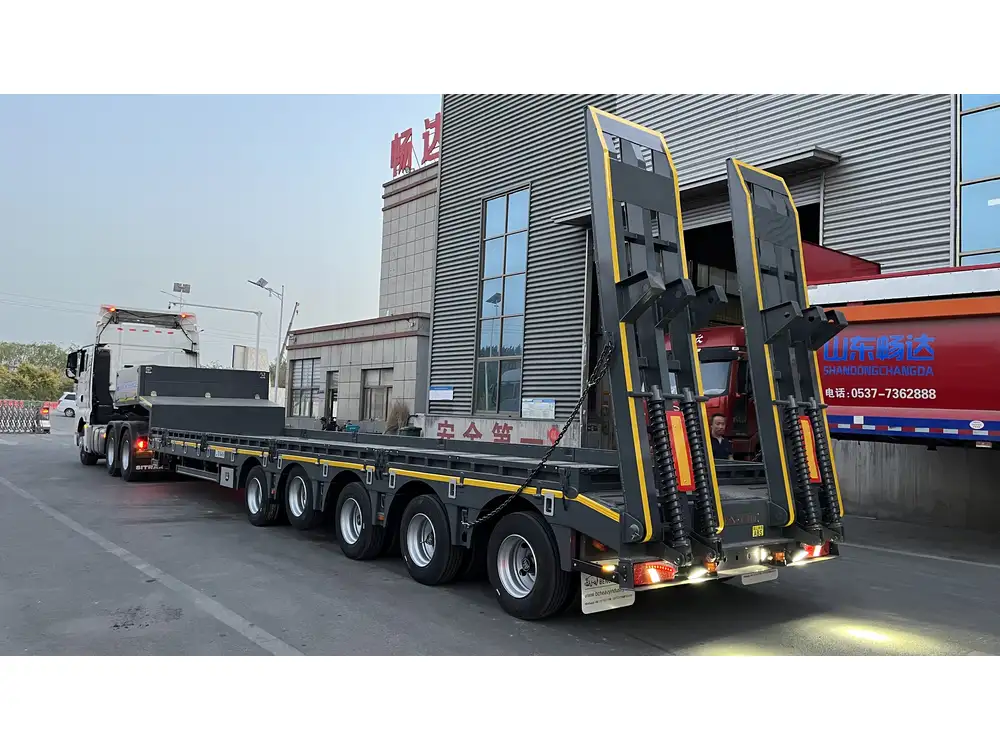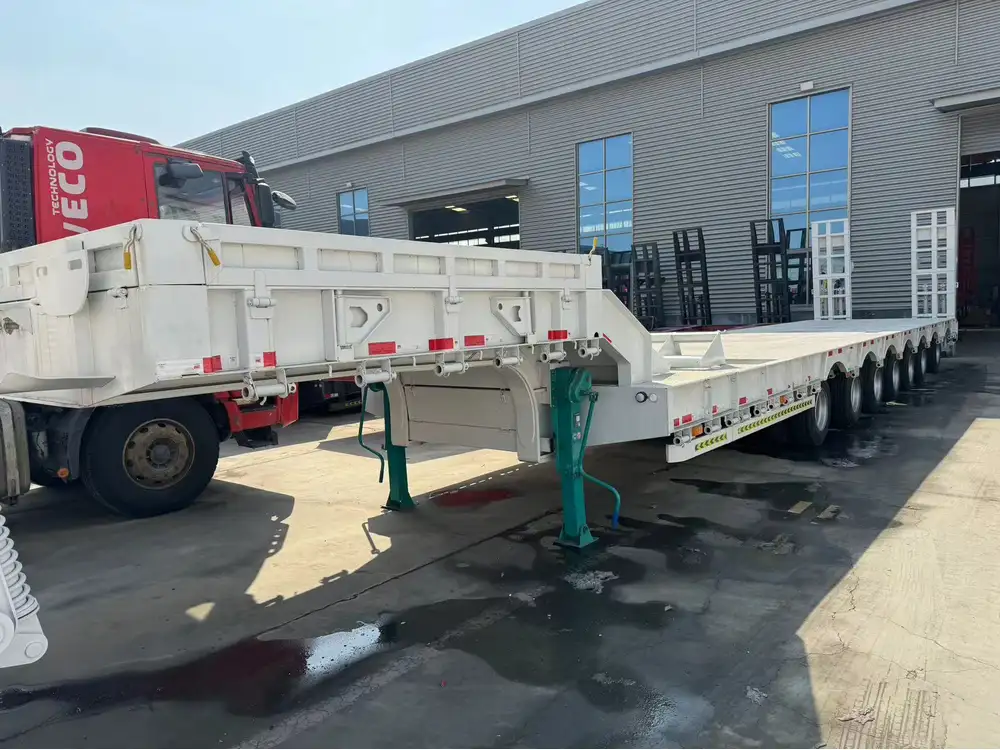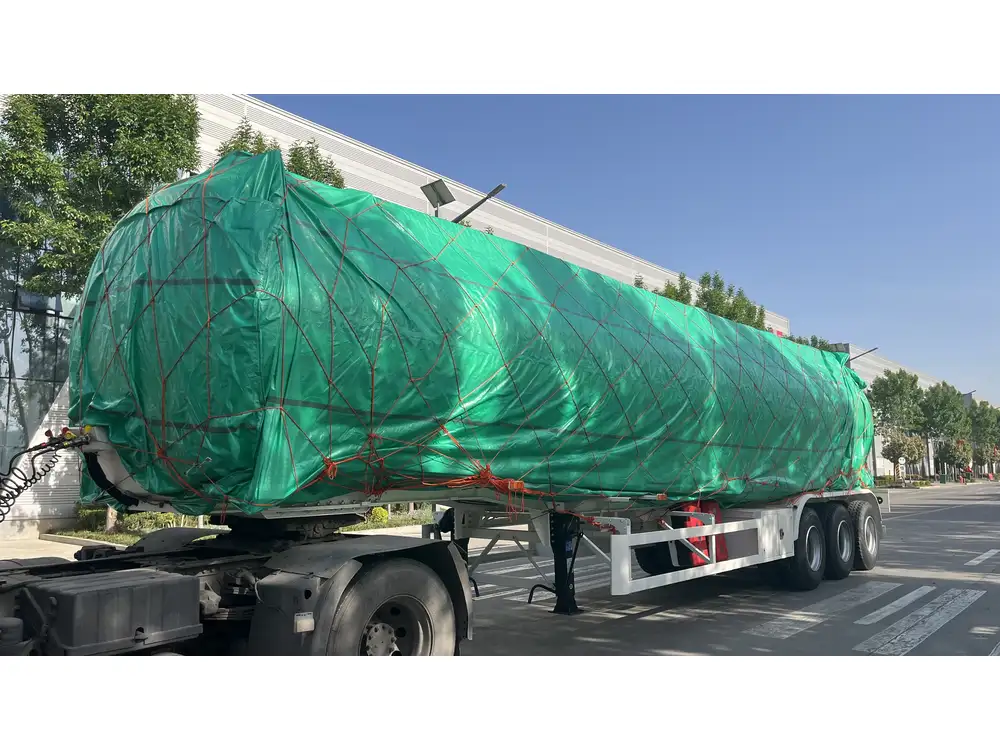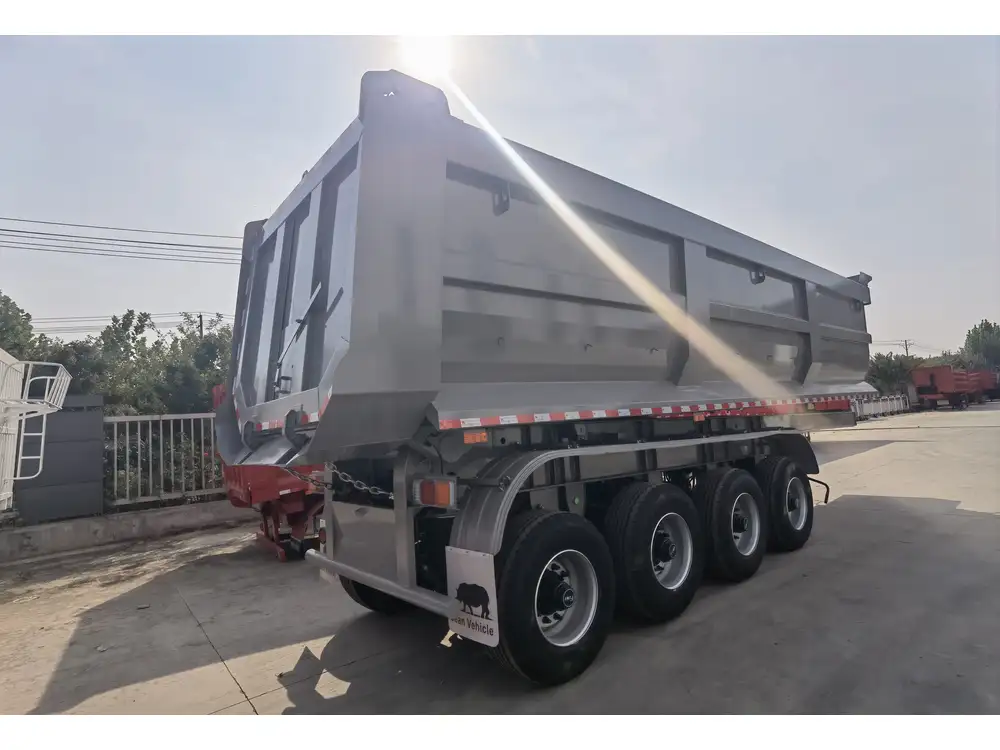When it comes to waste management, particularly for commercial and industrial entities, understanding how to properly dispose of materials can save time, reduce costs, and ensure compliance with regulations. One common question arises: Can you drop a trailer off at the dump? Today, we explore this query in depth, providing clarity on the topic while also surfacing crucial considerations to help guide your decision-making process.
The Basics: What is Considered a Dump?
Before diving deeper into whether you can drop off a trailer at the dump, it’s essential to understand what is typically classified as a dump.
| Term | Definition |
|---|---|
| Landfill | A site for the disposal of waste materials, usually regulated. |
| Transfer Station | A facility where waste is temporarily held before being transported to a landfill. |
| Recycling Center | A location dedicated to the sorting and processing of recyclable materials. |
In layman’s terms, the term dump often colloquially refers to any of these waste management facilities. However, the policies governing what can and cannot be delivered, and by whom, can greatly vary from one facility to another.
Regulations and Policies Governing Waste Disposal
Most landfills and dumps have strict regulations to ensure the proper handling of waste. Several factors influence whether dropping off a trailer is allowed. Understanding these can help streamline the disposal process:
Permit Requirements: Some facilities may require permits for commercial vehicles. Investigating these prerequisites is crucial before planning a drop-off.
Trailer Weight and Size Restrictions: Many dumps have guidelines regarding the size and weight of trailers. This not only pertains to safety but also to operational logistics within the dump site.
Type of Waste: The nature of the materials in the trailer significantly matters. Among the critical details to consider:
- Residential Waste: Generally accepted at most dump sites.
- Construction Debris: Requirements vary; check if the location has a specific area for construction materials.
- Hazardous Waste: Frequently prohibited; refer to local regulations regarding hazardous materials.
Operational Hours: Each facility has designated operational hours, and some may only accept trailers during select hours.
Fees and Payments: Many facilities charge based on weight or type of material. Familiarize yourself with the payment structure in advance.

Dropping Off a Trailer: Step-by-Step Process
If you’ve confirmed that your local dump allows trailer drop-offs, you can efficiently navigate the process by adhering to the following steps:
Step 1: Research Local Regulations
Start by checking your municipality’s waste management website for specific regulations about using trailers at local dumps.
Step 2: Gather Necessary Permits and Documentation
If your dump requires permits, ensure that you apply for and receive the necessary documentation before heading to the site. Failure to present these could result in denied entry.

Step 3: Clarify Load Composition
Make sure you know what you are transporting. The type of waste dictates the dump’s acceptance policy, and being misinformed can lead to unnecessary complications.
Step 4: Prepare for Arrival
Know the drop-off protocol:
- Weight Station: Some facilities require weighing before entry.
- Designated Drop Zones: Upon arrival, follow any posted signs that indicate where to drop your trailer load.
Step 5: Payment and Receipt
Be prepared to pay before unloading, as many facilities will issue a receipt that may be required for future reference.

Alternatives to Dropping Off a Trailer
Although dropping off a trailer at a dump may be a viable option, consider these alternatives that might better suit your needs:
| Option | Advantages |
|---|---|
| Hire a Disposal Service | Convenience and professional handling of the waste. |
| Recycling Facilities | Potential for more sustainable waste management. |
| Donation to Charities | Extending the lifecycle of usable items. |
What to Consider for Commercial Entities
For businesses, the implications of waste disposal can be significant. Evaluate the following factors:
1. Cost-Effectiveness
Weighing expenses associated with a commercial drop-off against other options like hiring disposal services can provide clarity for your bottom line.

2. Time Efficiency
Understand if dropping at a dump fits your timeline better than other waste management solutions. Often, transporting waste amenities should fit seamlessly into your workflow.
3. Legal Compliance
Businesses, especially, must ensure they adhere to all local waste disposal regulations to avoid ramifications. This includes permitting for hazardous waste, which can attract hefty fines if neglected.
Pitfalls to Avoid When Dropping Off a Trailer
Even with careful planning, pitfalls along the way could derail your efforts. Here are some common issues to watch for:
Assuming Open Access: Always confirm the ability to drop off a trailer, as many locations have strict limitations.
Neglecting Weight and Size Limits: Be cognizant of the specific requirements of each facility.
Overlooking Fees: Ensure you are aware of all potential costs to avoid surprises that can impact budgeting.

FAQs About Trailer Disposal
Can I drop a trailer full of mixed waste?
This often depends on location policies. Many dumps require specific separation of materials, so checking guidelines is key.
Are there size restrictions for trailers?
Yes, many facilities do impose restrictions regarding trailer dimensions and tonnage.

What if I have hazardous materials?
Hazardous waste usually requires distinct handling. Contact local authorities for guidance specific to your situation.
How can I find out about disposal fees?
Most facilities publish their fee schedules on their websites, so it’s beneficial to conduct thorough research beforehand.
Conclusion: Empowering Your Waste Management Decisions
Dropping a trailer off at the dump encompasses a myriad of considerations—each deserving of your attention. By equipping yourself with knowledge about regulations, alternate waste management strategies, and potential pitfalls, you can optimize your waste disposal process. This ensures your materials are handled legally and efficiently, reflecting responsible management practices that can benefit both business and community.
Before planning your next trailer drop-off, approach the process with these insights and become an informed participant in waste management. Understanding the nuances may ultimately help you navigate this often-overlooked aspect of operation in a more effective manner. Whether you are facilitating your own disposal or supporting a larger organization, knowing your tools—such as waste trailers and disposal sites—will empower you to make decisions that align with your goals.
As we wrap up, always remember that responsible waste management is not only about efficiency but also about fostering sustainable practices that benefit the community and environment.



